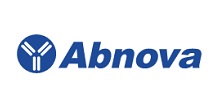


TNF (Human) Recombinant Protein



* The price is valid only in USA. Please select country.
-
More Files
- More Functions
-
Specifications
Product Description
Human TNF recombinant protein with polyhistidine tag at the C-terminus expressed in Escherichia coli.
Host
Escherichia coli
Theoretical MW (kDa)
Calculated MW: 18.3
Form
Lyophilized
Preparation Method
Escherichia coli expression system
Purification
Ni-NTA chromatography
Purity
> 97% by SDS-PAGE
Endotoxin Level
< 0.05 EU/ug
Activity
The ED50 for this effect is < 0.1 ng/mL, measured by the induction of cytotoxicity in L929 cells in the presence of actinomycin D. The specific activity of recombinant human TNF alpha is approximately ≥ 1 x 107 IU/mg, which is calibrated against the human TNF Alpha WHO International Standard (NIBSC code: 12/154).
Quality Control Testing
SDS-PAGE Stained with Coomassie Blue
Recommend Usage
SDS-PAGE
The optimal working dilution should be determined by the end user.Regulatory Status
GMP grade
Storage Buffer
Lyophilized from PBS (500 mM NaCl, pH 8.0).
Reconstitute the lyophilized protein in sterile H2O to a concentration of at least 0.5 mg/mL and incubate the stock solution for at least 20 min to ensure sufficient redissolution. Please use the protein within one month after reconstitution.Storage Instruction
Store at -20°C for 12 months in lyophilized state.
After reconstitution with deionized water, store at -20 or -80°C for 1 month.
Aliquot to avoid repeated freezing and thawing. -
Applications
Functional Study
The ED50 for this effect is <0.1 pg/mL, measured by the induction of cytotoxicity in L929 cells in the presence of actinomycin D.SDS-PAGE
-
Gene Info — TNF
Entrez GeneID
7124Gene Name
TNF
Gene Alias
DIF, TNF-alpha, TNFA, TNFSF2
Gene Description
tumor necrosis factor (TNF superfamily, member 2)
Gene Ontology
HyperlinkGene Summary
This gene encodes a multifunctional proinflammatory cytokine that belongs to the tumor necrosis factor (TNF) superfamily. This cytokine is mainly secreted by macrophages. It can bind to, and thus functions through its receptors TNFRSF1A/TNFR1 and TNFRSF1B/TNFBR. This cytokine is involved in the regulation of a wide spectrum of biological processes including cell proliferation, differentiation, apoptosis, lipid metabolism, and coagulation. This cytokine has been implicated in a variety of diseases, including autoimmune diseases, insulin resistance, and cancer. Knockout studies in mice also suggested the neuroprotective function of this cytokine. [provided by RefSeq
Other Designations
APC1 protein|OTTHUMP00000029281|OTTHUMP00000037669|TNF superfamily, member 2|TNF, macrophage-derived|TNF, monocyte-derived|cachectin|tumor necrosis factor alpha
-
Interactomes
-
Pathways
-
Diseases
- +1-909-264-1399
+1-909-992-0619
Toll Free : +1-877-853-6098 - +1-909-992-3401
- sales@abnova.com

















